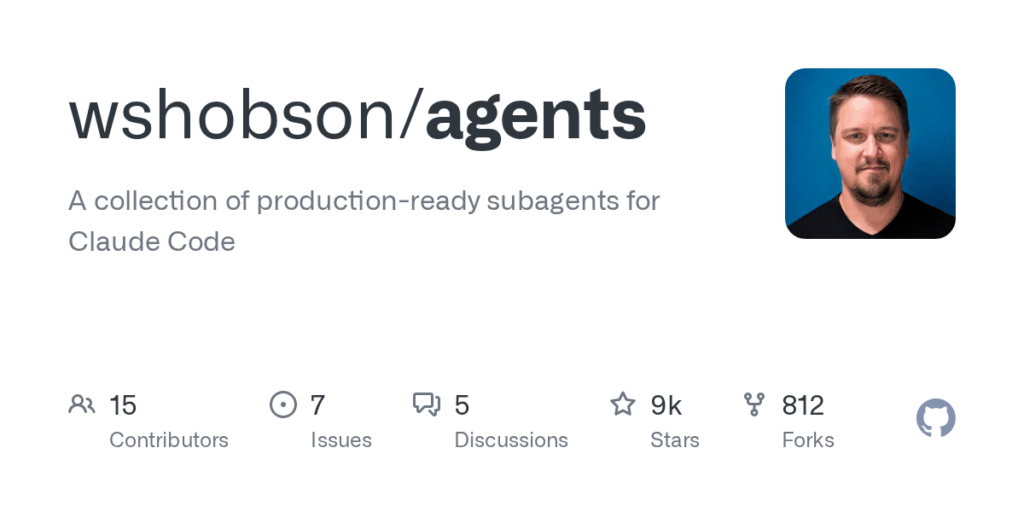agents
Basic Information
This repository is a curated collection of 75 specialized subagents for Claude Code designed to extend Claude Code's development and operational workflows with domain-specific expertise. Each subagent is defined by a name, description, optional model assignment, and a system prompt so Claude Code can automatically delegate tasks or invoke a named subagent on explicit request. The collection spans development and architecture, language specialists, infrastructure and operations, quality and security, data and AI, documentation, SEO and marketing, and several specialized domains. Subagents are assigned to one of three models based on complexity to balance capability and cost. The README documents installation into the ~/.claude/agents directory, usage examples, multi-agent orchestration patterns, and contribution guidelines for adding new subagents.








